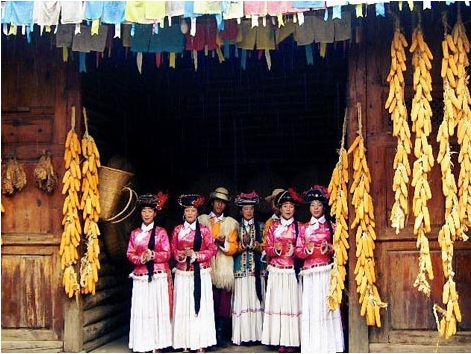
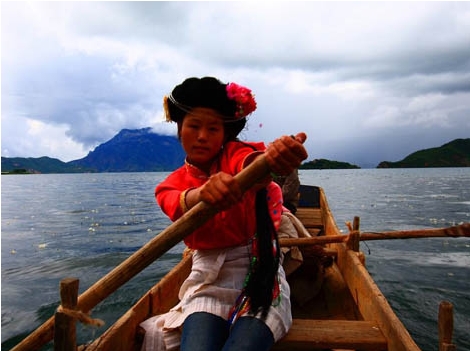
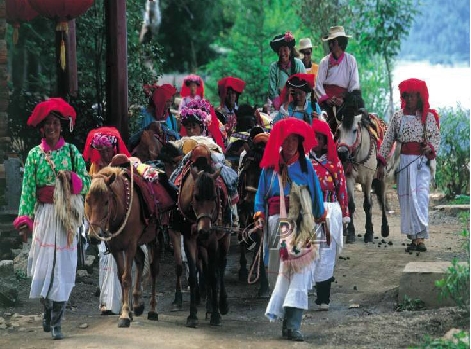
In the Lugu Lake region, Yunnan Province, the custom of visiting marriage has been practiced for centuries among the Mosuo People. The man and the woman involved in such a marriage practice spend their whole life with their respective maternal families except for sleeping together at night. This kind of marriage involves no economic relationship. The mother's side of the family is responsible for bringing up any children that are produced through this union. Mosuo people's marriage is free. Their "marriage" can come to an end if either of the partners no longer wants to live with the other. Interestingly enough, in some villages along the Xianshui River whose residents are predominantly Tibetans, the marriage system of a matrilineal nature is also in existence.
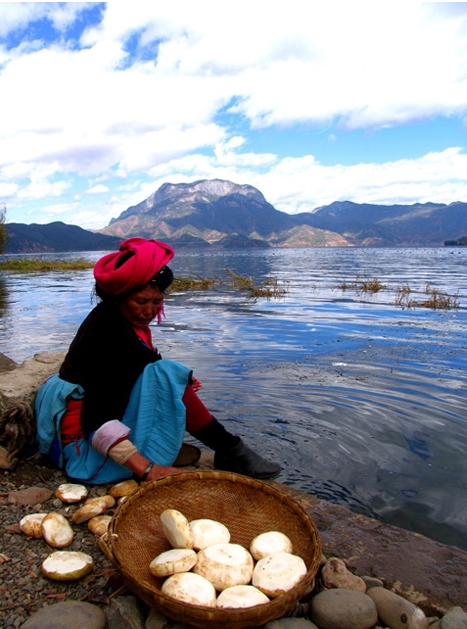
The Visiting Marriage among Tibetans along the Xianshui River
Lugu Lake and Xianshui River are both located on the lower reaches of the Yalong River. Some travelers have come with sexual fantasies, wishing to experience the indigenous visiting marriage custom. But the local people refuse to let outsiders in.
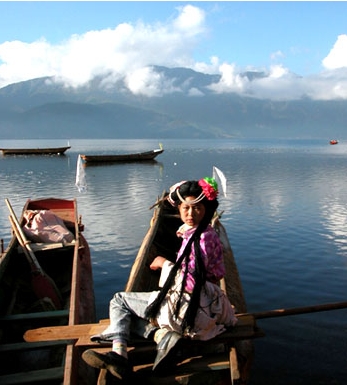
Ren Xinjian, an expert on Tibetan studies, said that the historical Dongnv Country was built along the Yalong River and walking weddings are the remnants of the matrilineal culture prevalent then. Now, visiting marriage is still the main marriage system practiced in the areas of Xianshui River and Lugu River.
When posing for photos, a Tibetan family felt uneasy because the two brothers in the family shared one wife. And they had heard from the travelers that such a marriage practice is strange in the eyes of the outsiders. So in the photograph, the two brothers stood at a distance.
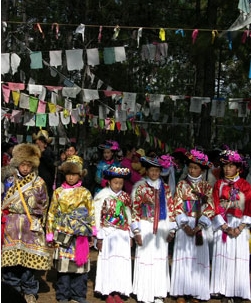
When researchers first paid a visit to this family, they were surprised at the fact that the two brothers have married one woman. However, as they studied the culture further, they had come to realize that this kind of marriage was suitable in the mountainous area where the land is scarce and the population is growing.
The elder brother in the family said, "In my family, the brothers have all married one wife for generations. We divide the work in our family clearly. The younger brother herds the sheep and cattle while I works on the farm. Our wife would do all the household work and prepare meals for us.". The family is stable and lives happily and becomes rich in this way. They had two babies, but they never thought of who was the biological father of their children. For them divorce is unthinkable. If one brother fell in love with another woman, he would be laughed at by the villagers because that meant he wanted to escape from his family responsibility.
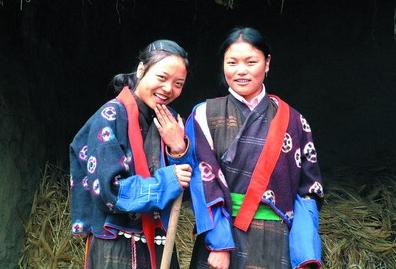
Another Tibetan family studied had four husbands and eight children. When asked whom she loved most among the four men she married, the woman answered skillfully, "I love them all. It's impossible to love one but not all others." As to which one she considered was the best, she replied like a diplomat, "They are all wonderful."
The system of wife-sharing among brothers is respected as a cultural heritage from the remote past and be allowed to remain intact. As a matter of fact, the local government has no plan to interfere with the custom. The local people admit that the advantage of this marriage practice is that family members share all the work and only with a big family can one improve his or her lot in a harsh environment he or she lives.





